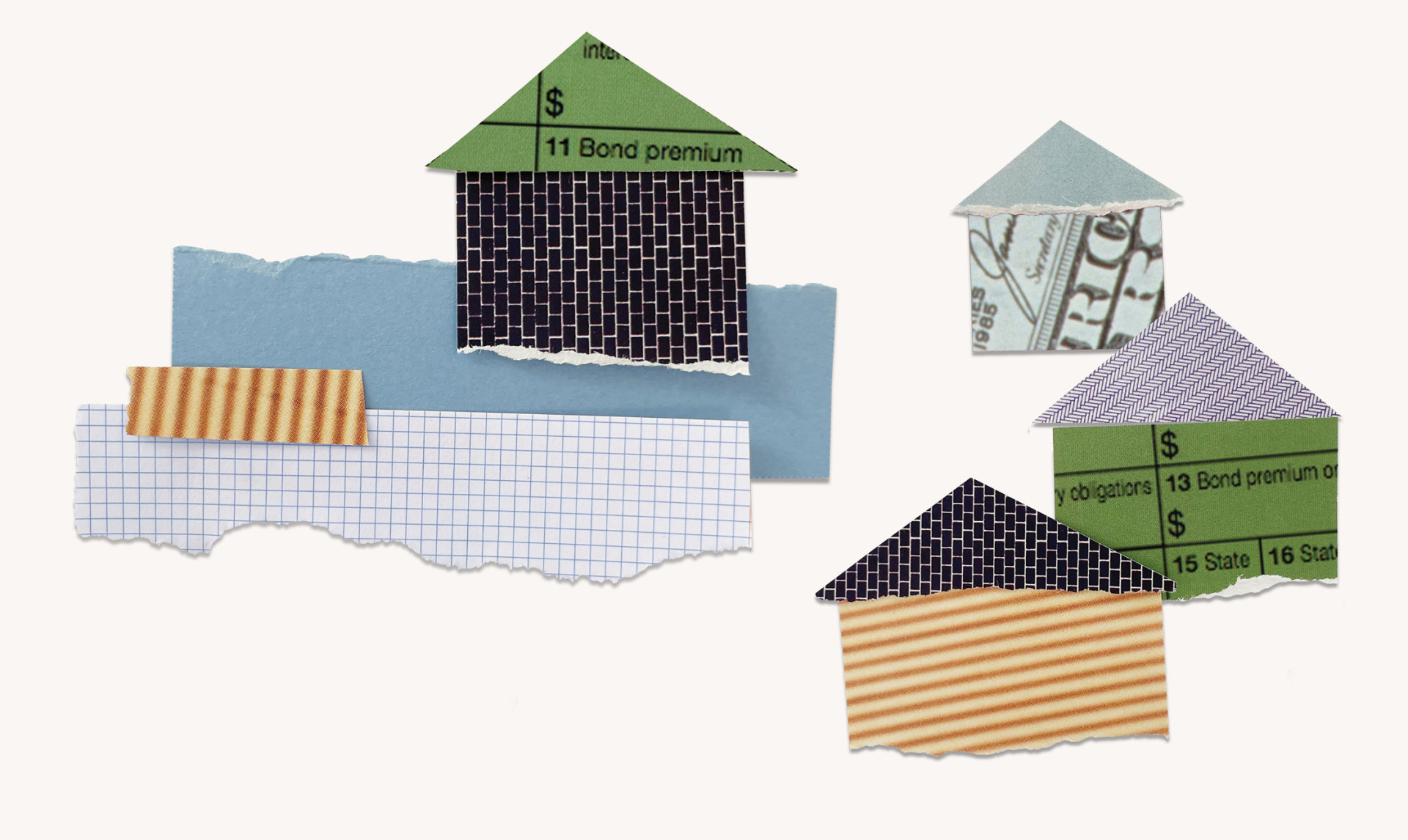Chasing late rent payments and answering emergency maintenance calls at 2 AM can quickly turn your investment property into a second job. Many landlords hit a breaking point where the constant stream of tenant issues makes them question if self-management is sustainable.
Property management companies offer a solution by handling these responsibilities professionally. While there are costs associated with these services, many property owners find a lot of value in what professional management provides beyond just time savings.
This guide examines exactly what property management services typically cost and what you receive in exchange. We break down common fee structures, service inclusions, and scenarios where professional management often leads to better financial outcomes for property owners.
Standard property management fee structures
When looking for property management services, you'll encounter two main pricing models:
1. Monthly percentage fees
Most property managers charge a percentage of the monthly rent collected, typically ranging from 6-12%. For example, if your property rents for $1,500 per month and the management fee is 8%, you'd pay $120 monthly for management services.
Pros:
- Aligns the manager's interests with yours - they make more when your property rents for more
- You only pay in proportion to income received
- Fees adjust automatically with rent changes
Cons:
- Can be more expensive for high-rent properties
- Costs can be less predictable when rent fluctuates
2. Flat rate fees
Some managers offer a set monthly fee regardless of rental income, typically $100 to $200 per unit monthly depending on your market.
Pros:
- Provides consistent, predictable expenses for budgeting
- Often more economical for higher-value properties
- Simplifies accounting with the same fee every month
Cons:
- Could reduce manager motivation to maximize rental rates
- "One-size-fits-all" pricing that may not reflect your property's specific management needs
Regional price variations
Property management fees often reflect local market conditions. In Boston or San Francisco, you might pay 10% of rent, while in smaller Midwest cities, rates might be closer to 7%.
These differences stem from several factors: local labor costs, competition among management companies, average property values, and typical maintenance expenses in the region.
Climate affects pricing too. Properties in Florida may have higher fees due to hurricane preparedness and humidity-related maintenance. Similarly, markets with strict rental regulations, like New York or Los Angeles, often see higher management fees due to the additional compliance work required.
What's standard in Chicago might seem expensive in Memphis, making local research essential before setting your budget.
Other common property management fees
Beyond the base fee, property managers often charge for specific services:
- Leasing/tenant placement fee:
- Vacancy fees:
- Maintenance markup:
- Onboarding/setup fee:
- Lease renewal fee:
- Eviction fees:
Additional costs to watch for
A good management agreement should clearly outline all potential charges. Review the entire contract before signing and ask about any unclear fees.
Marketing
Professional managers may charge for enhanced property promotion beyond basic listings. While basic marketing is often included in the leasing fee, premium services (like professional photography, virtual tours, premium listing placements, and targeted social media campaigns) might cost $100-$500 depending on market competitiveness.
Inspections
Some management companies include routine inspections in their base fee, while others charge $50-$150 per inspection. These typically occur at move-in, move-out, and 1-4 times yearly.
Early contract termination
If you end your management agreement early, some property managers will charge a fee equivalent to 1-3 months of management charges. Some contracts include declining termination fees that decrease the longer you remain with the company.
Reserve fund requirements
Most companies require owners to maintain a reserve fund for emergency repairs, typically $250-$1,000 per property. This isn't a fee but your money held in trust.
What you get for your money (ROI analysis)
Just as you expect returns from your rental property investment, you should expect tangible value from your property management fees. The right management company isn’t simply an expense—it's an investment that should generate returns through improved efficiency, reduced vacancies, and professional oversight.
Here's how management services translate to potential ROI:
1. Time savings
Let's say you earn the equivalent of $100/hour at your day job. If property management takes 10 hours monthly between tenant calls, maintenance coordination, and rent collection, that's $1,000 worth of your time. An 8% fee on a $1,500 rental ($120) saves you $880 in time value each month.
2. Professional tenant screening
Experienced managers use thorough screening to find reliable tenants. Let's say you self-manage and rent to a tenant who stops paying after three months, requiring eviction. With lost rent ($4,500), legal fees ($1,500), and turnover costs ($1,000), one bad tenant costs $7,000—enough to pay for years of management fees.
3. Legal compliance management
Property managers usually stay current on ever-changing landlord-tenant laws and fair housing regulations. This expertise helps avoid potential discrimination claims, security deposit disputes, and improper eviction procedures that could result in substantial legal penalties.
4. Maintenance coordination
Established property managers often work with vetted contractors at preferred rates. Their preventative approach can extend system lifespans and prevent small issues from becoming expensive emergencies.
5. Financial reporting
Detailed financial tracking provides documentation for taxes and investment analysis. This maximizes legitimate deductions that might otherwise be missed if you're handling everything yourself.
6. Rent collection efficiency
Professional managers typically achieve higher collection rates through consistent enforcement. Tenants often prioritize payments to management companies over individual landlords, as the relationship feels more business-oriented.
How to evaluate if property management is worth it for you
Making the decision to hire a property management company isn't just about dollars—it's about control. Handing over management responsibilities means trusting someone else with your investment. This can be challenging, especially for hands-on investors who enjoy the landlording process.
Here are several factors we think you should consider:
Risk tolerance
Consider your comfort level with rental investment risks. Professional managers typically implement consistent policies that reduce liability exposure and ensure compliance with housing regulations. If legal complications or tenant disputes cause you significant stress, this risk mitigation alone might be worth the management cost.
Personal time constraints
Assess your current commitments—career, family, other investments—and consider whether property management responsibilities fit comfortably within your schedule. For many investors, focusing on acquisition rather than day-to-day operations justifies the management expense, even for one property.
Geographic proximity to properties
If you live far from your rental properties, the cost of travel alone can quickly exceed management fees. Even living across town can make emergency responses difficult. Be honest about your ability to provide timely service to tenants when evaluating management costs against your personal availability.
Maintenance skills and connections
If you're handy with repairs and have established relationships with reliable contractors, you may save considerably by self-managing. Without these skills or connections, a property manager's vendor network often delivers better value.
Financial objectives and cash flow
If you're maximizing immediate cash flow with tight margins, management fees may impact your returns in the short-run. However, if you're focused on long-term appreciation or have comfortable cash flow, professional management can provide stability.
Property portfolio size
As your portfolio grows, professional management becomes more cost-effective. What seems expensive for one unit becomes essential with five or ten properties.
Life stage and flexibility
New parents, caregivers, those with demanding careers, or people approaching retirement often find different value in outsourcing management responsibilities. Think about your current situation and anticipated changes that might be just around the corner.
Experience level
Property management involves complex regulations, maintenance decisions, and tenant relationships. New investors benefit from professional expertise while learning the business.
Ready to explore professional property management?
If you've weighed these factors and think professional management might be right for your investment strategy, Mynd offers a refreshingly transparent approach.
With flat-rate pricing starting at just $79/month in select markets, you can enjoy predictable management costs regardless of your property's rental rate.
Mynd combines technology-driven efficiency with local market expertise to deliver comprehensive property management services without the traditional percentage-based fee structure that cuts into your returns as rents increase.
With Mynd, you get:
- Quicker than average leasing times
- Consistently high investor satisfaction scores
- Less than 2% delinquency across our portfolio of managed properties
- Rental income protections:
Visit Mynd's property management page to check pricing specific to your market and discover how their services can help you achieve better returns with less hassle.



